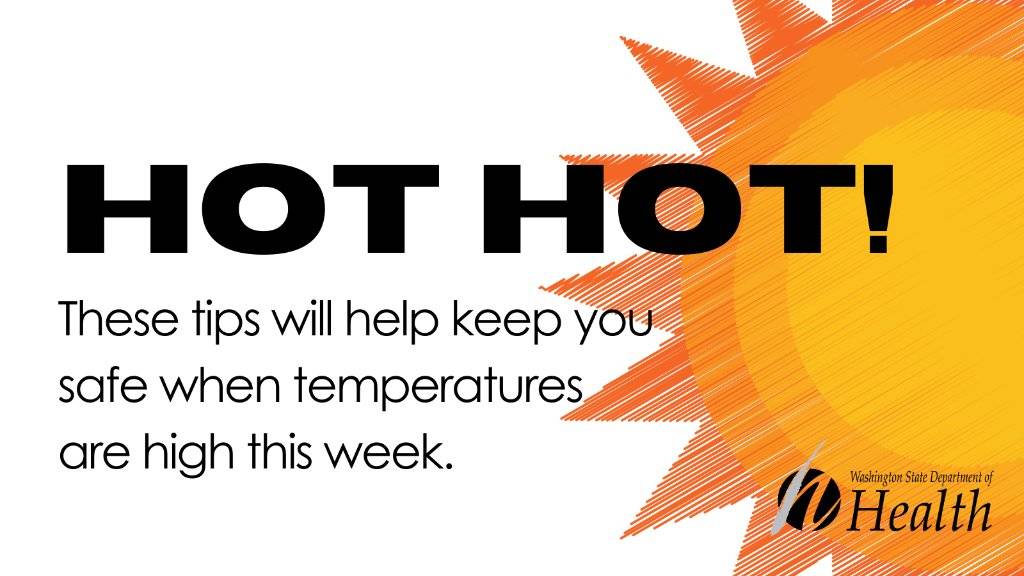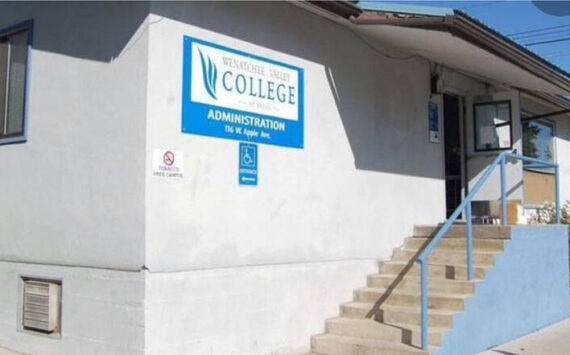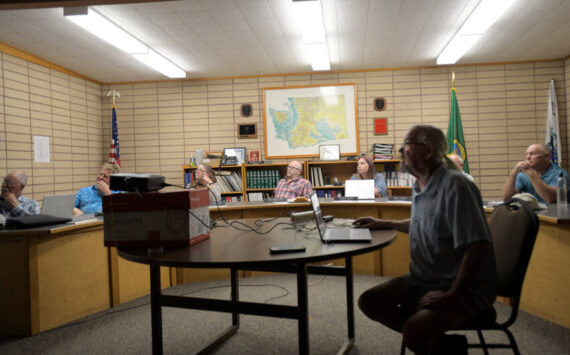OKANOGAN – In response to the high temperatures being exprenienced across North Central Washington, Okanogan County Public Health is issuing a heat advisory and urging people to take extra precautions to avoid heat-related illnesses.
Extreme heat often results in the highest number of annual deaths among all weather-related hazards. Heat-related illnesses are preventable, says Public Health, adding, it is important to learn the symptoms and what to do if you or a loved one shows signs of having a heat-related illness. In extreme heat, evaporation is slowed and the body must work harder to maintain a normal temperature.
Groups at increased health risk from extreme heat include older adults (ages 65+), people with chronic medical conditions, young children and those who work or exercise in a high heat environment.
- It’s important to visit older friends, relatives and neighbors to make sure fans or air conditioners are working and living spaces are ventilated. People who do not have air conditioning are advised to seek relief from the heat by visiting friends or relatives who have air conditioning.
- Health and safety tips to avoid heat-related illness:
- Stay indoors and in an air-conditioned environment as much as possible.
- Drink plenty of fluids – avoid beverages that contain alcohol, caffeine or a lot of sugar. • Eat more frequently but meals should be balanced and light.
- Never leave any person or pet in a parked vehicle.
- Avoid dressing babies in heavy clothing or wrapping them in warm blankets.
- Cover windows that receive morning or afternoon sun. Awnings or blinds can reduce the heat entering a house by as much as 80 percent.
- Make sure pets have plenty of water.
The early warning signs of heat stress can include decreased energy, slight loss of appetite, light headedness and nausea. People experiencing these symptoms should go to a cool environment, drink fluids, remove excess clothing, and rest.
Serious signs of heat stress can include unconsciousness, rapid heartbeat, throbbing headache, dry skin, chest pain, mental confusion, irritability, vomiting, diarrhea, muscle cramps, staggering and/or difficulty breathing. People experiencing these symptoms should get immediate medical attention. While waiting for help move the person to a cool area, remove excess clothing, spray with water and fan the person. In an emergency, dial 911.
From the Washington State Department of Heath:
Hot Weather Safety
Severe heat may cause illness or even death. When temperatures rise to extreme highs, reduce risks by taking the following precautions.
Hot weather precautions to reduce the risk of heat exhaustion and heat stroke
- Stay indoors and in an air-conditioned environment as much as possible unless you’re sure your body has a high tolerance for heat.
- Drink plenty of fluids but avoid beverages that contain alcohol, caffeine or a lot of sugar.
- Eat more frequently but make sure meals are balanced and light.
- Never leave any person or pet in a parked vehicle.
- Avoid dressing babies in heavy clothing or wrapping them in warm blankets.
- Check frequently on people who are elderly, ill or may need help. If you might need help, arrange to have family, friends or neighbors check in with you at least twice a day throughout warm weather periods.
- Make sure pets have plenty of water.
- Salt tablets should only be taken if specified by your doctor. If you are on a salt-restrictive diet, check with a doctor before increasing salt intake.
- If you take prescription diuretics, antihistamines, mood-altering or antispasmodic drugs, check with a doctor about the effects of sun and heat exposure.
- Cover windows that receive morning or afternoon sun. Awnings or louvers can reduce the heat entering a house by as much as 80 percent.
If you go outside
- Plan strenuous outdoor activities for early or late in the day when temperatures are cooler; then gradually build up tolerance for warmer conditions.
- Take frequent breaks when working outdoors.
- Wear a wide-brimmed hat, sun block and light-colored, loose-fitting clothes when outdoors.
- At first signs of heat illness (dizziness, nausea, headaches, muscle cramps), move to a cooler location, rest for a few minutes and slowly drink a cool beverage. Seek medical attention immediately if you do not feel better.
- Avoid sunburn: it slows the skin’s ability to cool itself. Use a sunscreen lotion with a high SPF (sun protection factor) rating.
- Avoid extreme temperature changes. A cool shower immediately after coming in from hot temperatures can result in hypothermia, particularly for elderly or very young people.
- If the power goes out or air conditioning is not available
- If air conditioning is not available, stay on the lowest floor out of the sunshine.
- Ask your doctor about any prescription medicine you keep refrigerated. (If the power goes out, most medicine will be fine to leave in a closed refrigerator for at least 3 hours.)
- Keep a few bottles of water in your freezer; if the power goes out, move them to your refrigerator and keep the doors shut.








